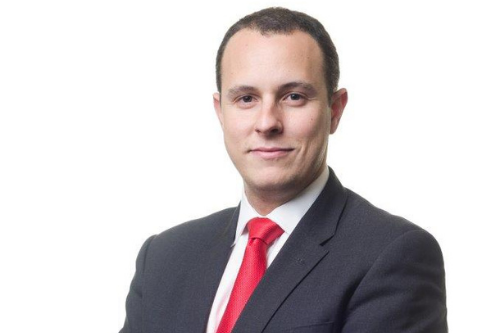

The evolution of the war and terrorism insurance market over the last 25 years has been fascinating to watch and Edward Winter (pictured), senior war and terrorism underwriter & head of terrorism at Markel International, has seen it all unfold from a unique standpoint. Winter joined the insurance sector in 1996, starting his career at QBE where, over the next 12 years, he developed his path to becoming an underwriter by building strong knowledge and relationships within the terrorism space, helping QBE to become a lead market in this area.
He left QBE to join the global specialty (re)insurer Canopius before joining Markel, where he has since spent 11 years building up a strong team which, in turn, has enabled the insurer to become a key player in the market. Now Markel’s team has developed its presence beyond London to include Dubai, India and Singapore and there are no plans for this expansion to slow down.
“From 1996 onwards, there were limited markets that wrote terrorism, but QBE, along with a few other carriers, were the first to develop standalone teams to write this cover mainly for Latin America and Asia,” he said. “Since then, the market continues to change and needs to evolve from year-to-year, as we are seeing different attacks and event scenarios taking place.
“Those varied events are keeping my interest in this class of business, where we are developing and broadening our product offerings. Markel provides me and the team with the freedom to continue developing tailored solutions that meet our customers’ requirements.”
It could have been expected that given the momentous upheaval of the COVID-19 crisis, there might be some easing of the pressures facing this market, but Winter noted that, unfortunately, this has not been the case. Over the last two years, he said, he and the team have seen some of the worst losses for SRCCMD (Strikes, Riots, Civil Commotion, Malicious Damage) the market has seen within Chile, the US, Colombia, Hong Kong and, more recently, South Africa.
If the industry was to accumulate the losses for all those events, he said, it would be getting close to US$4 billion or even more. Those events have not only affected the political violence market, but also the property market, which has suffered large losses. Those events ignited due to various reasons such as increased costs on fuel, tax, the BLM movement and government elections. Markel has also seen some small protests occur as a result of the COVID lockdowns that have been introduced across the globe.
“Could we see this continue?” Winter asked. “I fear those events will still take place in most countries around the world as we slowly return to some sort of normality. Following those aforementioned events, we will see an influx of enquires and losses, which are out of step of where political violence has ever been.”
He highlighted that many people forget that the war and terrorism market is so much broader than just those two perils and actually entails all things political from a property damage perspective (e.g., not political risks). The sector also considers risks for riots, strikes and civil commotion which have been in the headlines since 2019.
The market has experienced those losses before, he said, but not in the frequency that it is currently seeing. The Arab uprising and the Thai violent protest in 2010 were the most significant events the market had seen until the Chilean Protest in 2019. More recently, it has witnessed the Mexico fuel prices protests, BLM, Colombian political protests and now, the South African political protests, all of which have rocked the market.
“This is the most vulnerable the market has been for a long time, but it must stand strong by continuing to provide customers with the cover they require during these difficult times,” he said. “At Markel, we do this at a level which is sustainable to the insurance market (e.g. at a pricing level), which reflects the growing risk that insurers are dealing with.
“With the fresh protests that have happened in recent years, there is now a vulnerability to this market. We can’t simply step away from this just because of the continued events, rather, we need to work with our clients to continue providing products that are of value to them and at a level where the market can make an adequate return.”
The need for quality coverage and advice has only been exacerbated by COVID, Winter noted. Markel was expecting the market to slow down as the world deals with the coronavirus pandemic, but instead, it has been the complete opposite.
“My team have been great in keeping in contact with the brokers, colleagues and clients globally through telephones calls and video conferences,” he said. “Regular team catch-ups have also helped us to manage our KPIs and give the team more responsibility, especially to our younger members, who have been invaluable, especially throughout the pandemic.
“The current situation with COVID-19 has brought our team closer together and made us stronger, so that we can keep growing and adapting Markel’s war and terrorism products moving forward.”
